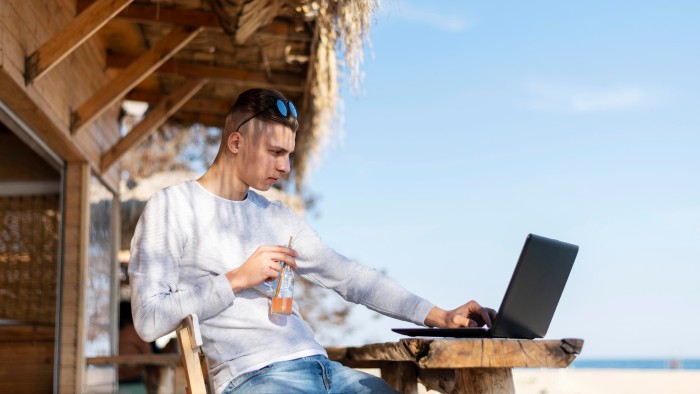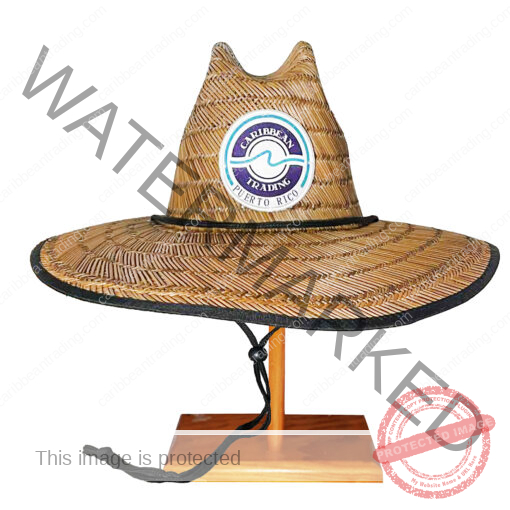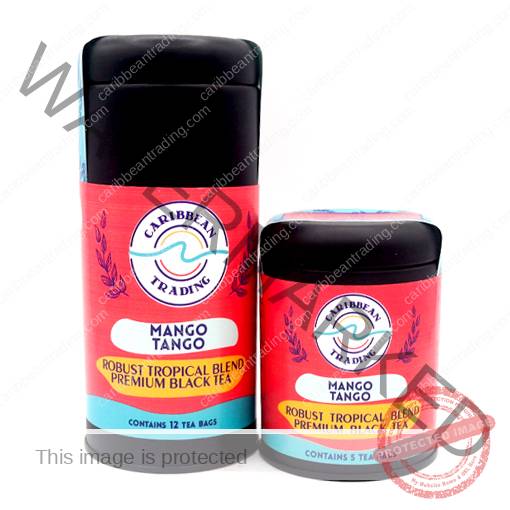Uncategorized
Work-Life Balance in the Caribbean: Is It Possible?
Achieving a healthy work-life balance has become an important focus worldwide, and the Caribbean is no exception. Known for its relaxed atmosphere, scenic beauty, and culture that values family and leisure, the Caribbean offers a unique setting to explore what true balance can look like. However, with changing economic demands and the global shift toward remote work, the question arises: Is work-life balance realistically achievable in the Caribbean?
The Caribbean Lifestyle and Work Culture
The Caribbean region is known for its laid-back lifestyle and a rhythm that differs from the hustle commonly seen in major cities. However, this doesn’t mean that people in the Caribbean are not hardworking. In fact, many Caribbean workers handle multiple jobs or work long hours to meet financial needs due to high living costs in some areas. In countries like Jamaica, Trinidad and Tobago, and the Bahamas, many jobs are centered around tourism and service industries, which often require irregular hours and seasonal peaks in demand.
Yet, the work culture in the Caribbean still prioritizes social interactions and family time, reflecting the region’s deep-rooted values. Events, holidays, and festivals are widely celebrated, providing opportunities for employees to unwind. For instance, Carnival in Trinidad, Reggae Sumfest in Jamaica, and Independence Day celebrations across various islands are times when work is generally set aside in favor of celebration and family gatherings. This cultural orientation does support work-life balance in certain ways, but external pressures make achieving a balanced lifestyle a challenge.
Remote Work in the Caribbean: An Emerging Trend
Remote work has been one of the most significant changes in recent years, impacting work-life balance globally. In the Caribbean, this trend has brought mixed results. Many people have embraced the opportunity to work from home, enabling them to spend more time with family and reducing the need for long commutes, which is especially relevant in urban areas like San Juan, Puerto Rico, and Kingston, Jamaica.
Despite these benefits, remote work has not been a universal solution. Some Caribbean nations face infrastructural challenges, such as unreliable internet connectivity and frequent power outages. These issues disrupt remote work productivity and increase stress, potentially blurring the boundaries between work and personal time. Additionally, in some cases, remote work expectations may lead to longer hours and fewer breaks, as employees feel compelled to be constantly available online.
For those in service industries, the remote work trend has had limited impact. Hospitality, tourism, and public-facing roles require physical presence, which constrains the flexibility that remote work offers. Balancing work and life in such careers requires additional effort, as hours are often tied to tourism seasons, holidays, and even the weather.
Balancing Economic Necessities with Leisure Time
In Caribbean nations, economic conditions can directly influence work-life balance. Many households rely on multiple income sources to maintain a stable lifestyle, meaning that taking time off can feel like a financial setback. Workers may also feel the need to prioritize job security, which can lead to long hours or overtime commitments. The cost of living, particularly in tourist-heavy destinations like the Bahamas or Barbados, remains relatively high, which drives the need for longer working hours and impacts overall work-life balance.
Yet, there are also unique opportunities for finding balance within the Caribbean. The natural beauty of the islands, from white-sand beaches to lush rainforests, offers an ideal backdrop for relaxation. Caribbean workers often incorporate nature into their free time, finding relaxation through beach outings, hiking, or simply spending time outdoors. The Caribbean culture’s emphasis on community and family further reinforces the importance of balance, even in challenging economic climates.
Activities to Disconnect from Work
Finding ways to unplug and unwind is essential for maintaining a balanced lifestyle. In the Caribbean, where nature is readily accessible and cultural life is vibrant, there are numerous activities to help disconnect from work.
- Beach Relaxation: Spending time at the beach is a common and effective way to unwind. Caribbean beaches offer natural therapy, allowing workers to escape from daily pressures. Activities such as swimming, snorkeling, or simply sunbathing provide an opportunity to recharge without thinking about work responsibilities.
- Nature Hikes and Eco-Tourism: Many Caribbean islands feature beautiful landscapes, such as the Blue Mountains in Jamaica, El Yunque Rainforest in Puerto Rico, or Dominica’s lush greenery. Hiking and eco-tourism are great ways to engage with nature, offering both physical activity and a mental break from work routines.
- Wellness and Yoga Retreats: The wellness tourism industry has grown in the Caribbean, with resorts and centers offering retreats that focus on mindfulness, yoga, and stress management. These retreats can be a fantastic option for locals looking to unwind and achieve mental clarity without having to travel far.
- Local Festivals and Music Events: Caribbean culture is rich with music and festivals, many of which serve as perfect opportunities to disconnect from work. Attending live performances, dance events, and cultural festivals not only provides relaxation but also reinforces cultural connections, strengthening one’s sense of belonging and personal identity outside of work. You can also enjoy the nightlife using a betway app or go out to the many bars there.
By taking advantage of these unique activities, Caribbean residents can find ways to manage stress and achieve a healthier balance between work and personal life. Prioritizing time for such experiences is an important aspect of living a well-rounded life.
Government Policies and Corporate Initiatives for Work-Life Balance
While cultural aspects and individual choices play a significant role in work-life balance, government policies and workplace initiatives can also make a difference. Some Caribbean governments have begun to address the importance of work-life balance through labor policies. For instance, several nations have laws that mandate vacation days, sick leave, and parental leave, which contribute to a more balanced work environment.
In recent years, certain companies in the region have introduced flexible work arrangements, mental health programs, and wellness initiatives. Organizations in the financial, tech, and corporate sectors are increasingly aware of the benefits of work-life balance for employee productivity and morale. By investing in policies and initiatives that support flexible working hours or provide health benefits, employers can play a vital role in fostering a balanced work environment.
Additionally, tourism boards in various Caribbean countries are actively promoting “workcation” programs to attract remote workers from around the world, highlighting the Caribbean as an ideal location for achieving a better work-life balance. By marketing the Caribbean as a remote work destination, these initiatives are likely to encourage both locals and expatriates to embrace a balanced approach to work and life.
Challenges to Overcome for Sustainable Balance
Despite the numerous efforts toward achieving work-life balance, there are still significant challenges that the Caribbean region must overcome. Economic constraints remain a primary barrier, as many workers need to prioritize income security over leisure. Moreover, the pressures of high-demand tourism seasons and limited job flexibility make it hard for some to find adequate time for personal activities.
Another challenge is the level of support available for mental health and wellness. While there is increasing awareness of mental health issues, resources and services are still limited in many areas. Expanding mental health support and fostering a culture of open dialogue are crucial steps in creating a sustainable work-life balance.
In addition, there is often a lack of awareness or enforcement of labor rights in certain sectors. For work-life balance to be realistically achievable, it is essential for workers to feel empowered to take time off without fear of repercussions. This involves both governmental support and a shift in workplace culture, where employee well-being is prioritized alongside productivity.
Conclusion
Work-life balance in the Caribbean is influenced by a complex mix of cultural values, economic needs, and external pressures. While the Caribbean lifestyle inherently supports a balanced approach to work and leisure, economic demands and workplace challenges can hinder individuals’ ability to achieve this balance. However, with the help of remote work opportunities, local recreational activities, supportive government policies, and corporate wellness initiatives, there is potential for more sustainable work-life balance in the region.
Ultimately, by addressing infrastructural and economic barriers and promoting activities that encourage relaxation and mental well-being, the Caribbean can continue to progress toward making work-life balance a realistic and attainable goal. The region’s cultural appreciation for life beyond work is already a strong foundation, but the collaborative efforts of individuals, employers, and policymakers are essential to make work-life balance a practical reality in the Caribbean.







